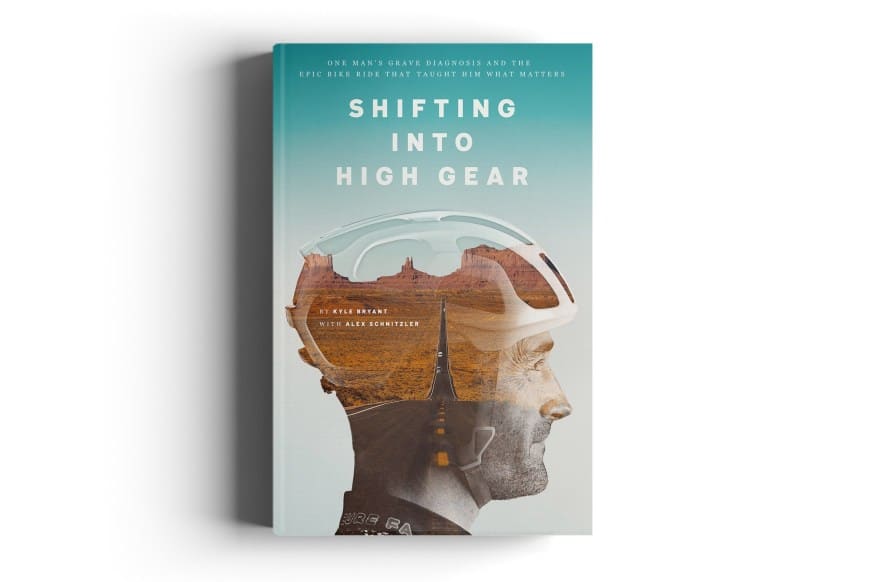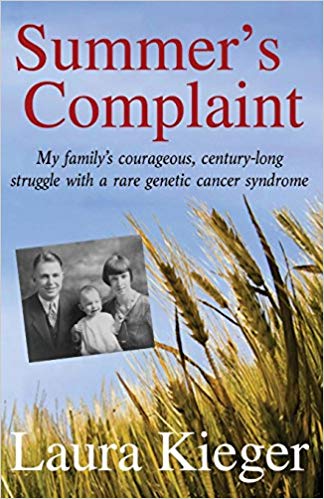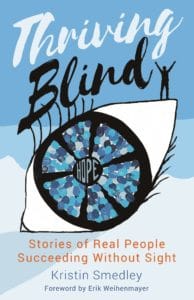Summer Reading: Books That Matter

What makes a good story?
I have recently had the opportunity to read several books written by people who are faced with some sort of medical adversity. This has only reinforced my love for a good story, especially one that teaches lessons beyond the action. Each of these books started with something familiar, something I could relate to personally. Whether it was the rollercoaster ride of parenthood, racing in a triathlon, a night out with college buddies, or the litany of scars and wounds I accumulated growing up.

But then each study took a turn that was unfamiliar to me. Something happened to the author that changed their lives forever. These people who are just like me suddenly were not. They experienced challenges and obstacles I could never imagine. They also experienced victories and achievements that I dream about. They became heroes in their own circumstances. They grew their identity beyond that of “patient” or the Mom with the blind kids.
Why are they powerful?
These stories are filled with the rich texture of humanity. They draw from a wide range of real-life characters, including the authors, who show us how people respond to adversity and therefore reveal little parts of ourselves. They draw us in and show us the good, the bad, and the ugly of people. And we can recognize ourselves in each of these. Times when we have not thought about the person behind the outward appearance. Times when we have taken for granted the ability to go where we want, when we want, to do what we want. And times when we too have overcome serious challenges. This is what lends these stories so much power.
What can we learn from them?
However, the stories are powerful because they teach. They teach us what it is like for another human being to experience life – whatever the circumstances. They teach us practical lessons about how to interact with people who have different abilities and disabilities than we do. They teach us how to respond to life’s curve balls and learn from our unique experiences.
In a very narrow sense, these stories all teach about the condition that their author is dealing with in a way that textbooks cannot.
This condition-related insight provides value to others with the same condition. First, it gives them assurance that they are not alone. Second, it gives them inspiration and perspective. And third, it gives them concrete examples of what remains possible for them.
People without the condition also benefit from learning about life with the condition. They learn that the disorder does not define the person. They learn to be aware of the challenges other people and can work to help them overcome them. They learn how to interact appropriately, respectfully, and genuinely with people who may be different from themselves. They learn to appreciate the remarkable in each person they meet. These are all skills that would help us all be better humans.
The Short List
So, what have I been reading? Here is a brief list and with short descriptions.
Bryant, K and A Schitzler Shifting Into High Gear: One Man’s Grave Diagnosis
Kyle lets us into his head as he wraps it around the diagnosis of Friedreich’s Ataxia during his first long trike ride from La Jolla, CA to Memphis, TN. Along the way we watch him come to grips with his life – just like every other 20-something does.
Buttenweiser, J GUTS: A Memoir.
Janet takes us on a journey through her life and her chronic intestinal dysfunction. She is funny, outspoken, and relatable.
Engel, M The Other End of the Stethoscope: 33 Insights for Excellent Patient Care
Marcus shares his experiences between the time a drunk driver hit the car he and his friends were in until he is released from the hospital. Marcus lost his sight forever but not his power of observation. The book is written to help healthcare providers understand the huge impact of their smallest actions.
Kieger, L Summer’s Complaint: My family’s courageous, century-long struggle with a rare genetic cancer syndrome
Summer’s Complaint is part medical memoir, part case study, about multiple generations of one family struggling with a rare genetic predisposition to cancer. What this book taught me was that each person’s health care journey is different and unique
Lee, M Hurt Road: The Music, The Memories and the Miles in Between
This one is a bit different, but not really. Mark Lee was hit by a truck his freshman year in High School and injured badly. Soon after that incident, his father got cancer and eventually died. Mark uses these events as anchors in the story of his life from small-time praise band to gold- and platinum-selling Christian Rock star.
Smedley, K. Thriving Blind: Stories of Real People Succeeding Without Sight
Kristin’s two sons were born with congenital blindness. She realized quite quickly that she wanted her boys to live “normal” lives and so she brought them up that way. In this short collection of stories, she shares her journey through interviews with others who have had extraordinary accomplishments and just happen to be blind. It is uplifting, informative, and thought-provoking.
Posted by Kevin Freiert
[social_warfare]



